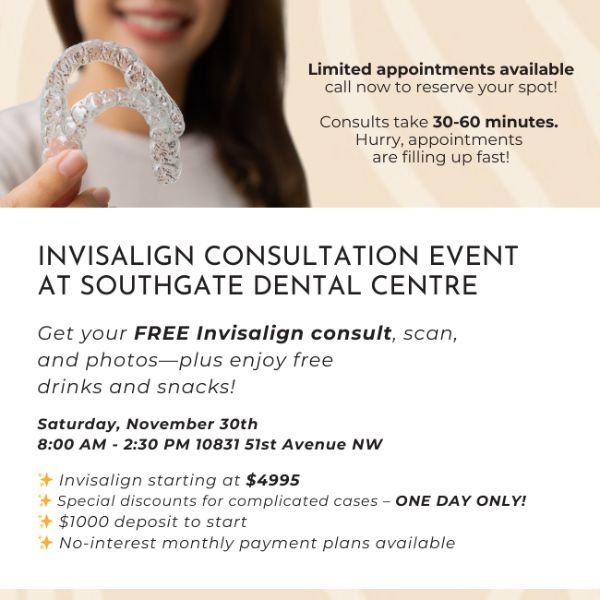Tooth sensitivity to cold items, such as chilled water or biting into ice cream, can feel like a sharp, uncomfortable sensation in your teeth. Tooth sensitivity is a common concern and can dampen what should be everyday pleasures.
Causes of tooth sensitivity to cold can include:
- Enamel and/or dentin erosion
- Gum recession
- Cavities
- Leaking or lost filling
Your dentist can conduct a dental exam to determine the cause of tooth sensitivity, address the underlying reason, and recommend treatment options, such as different toothpaste, fluoride treatment, dietary changes, or further dental work if required.
The Structure of the Tooth
Before we dive into tooth sensitivity, it’s vital to understand the tooth’s structure. The outermost layer of a tooth, known as the enamel, is the hardest substance in the human body and protects the more sensitive inner layers.
Beneath the enamel lies the dentin, a porous and less dense tissue that contains nerve endings. When the dentin becomes exposed, typically due to enamel erosion or gum recession, it can lead to tooth sensitivity, especially to cold temperatures. It can feel like an almost electric tingle. Not quite pain, but not comfortable either.
The reason the tooth hurts with even a small stimulus, is there are only pain nerve endings inside the tooth. Whether it’s hot, cold, or pressure, you will experience pain.
Causes of Tooth Sensitivity to Cold
Tooth sensitivity can result from the foods and drinks you consume that are sweet, sour, hot, or cold. How it affects a person can range from a mild easily forgotten discomfort to severe aching that stops you in your tracks. Several factors can contribute to that tooth experiencing sensitivity to cold.
Enamel and/or Dentin Erosion
Enamel and/or dentin erosion occurs when acids wear down the enamel over time. Enamel or dentin erosion can happen for various reasons, from consuming acidic foods and drinks to medical conditions that lead to vomiting or acid reflux. Once the enamel is compromised, it can’t come back. The dentin is left vulnerable, and cold temperatures can cause tooth sensitivity and discomfort.
Actually, the most common cause of enamel or dentin erosion is brushing your teeth too hard and/or brushing with a hard-bristle toothbrush.
Gum Recession
Your gums are essential for protecting the tooth roots. However, when they recede, the sensitive dentin root surfaces are exposed, making your teeth more susceptible to cold and other triggers. Gum recession can result from the following:
- Gingivitis
- Periodontal disease
- Aggressive brushing
Cavities
Cavities, or tooth decay, are areas of the tooth that have been permanently damaged and require dental intervention. When the acid in plaque eats away at the enamel or dentin, it provides a direct route for cold substances to reach the nerves in the dentin, causing tooth sensitivity.
Leaking or Lost Filling
Moderate to severe tooth sensitivity can result from a leaking or lost filling. When a filling becomes leaky or falls out, it exposes the inner tooth, including the sensitive dentin. This exposure can lead to heightened sensitivity to cold temperatures.
Treatment for Tooth Sensitivity
Thankfully, various treatments and solutions can help address tooth sensitivity to cold. Your dentist can help determine the appropriate approach based on the underlying cause of your sensitivity.
Desensitizing Toothpaste
One of the simplest and most common ways to manage tooth sensitivity is using a desensitizing toothpaste. These toothpastes contain ingredients that block the transmission of sensation from the tooth surface to the nerve, offering relief from the pain associated with cold foods and drinks.
Fluoride Treatments
Fluoride is crucial for remineralizing the enamel and making it more resistant, which can help reduce tooth sensitivity. In-office fluoride treatments can strengthen the enamel, reducing the sensations felt from cold exposure.
Dietary Changes
If you have tooth sensitivity, you can avoid certain drinks and foods that can wear down your enamel and further trigger your tooth sensitivity. Foods and drinks to avoid can include:
- Soft drinks
- Citrus fruits like lemon
- Pickles
- Cranberries
- Tomato and tomato-based foods
Dental Work
If the cause of your sensitivity is related to a cavity or filling, then the best solution is to have your dentist intervene and restore that tooth. Once repaired, a synthetic filling will protect the dentin, and your sensitivity should reduce or may go away entirely.
One approach to treat tooth sensitivity because of receding gums is brushing more gently. Your dentist may also suggest a gum graft that involves taking tissue from your palate and placing it where the gum has receded to protect the tooth root. You can also follow some tips to prevent further gum recession.

Preventive Measures to Reduce Tooth Sensitivity
Understanding the causes of tooth sensitivity to cold is paramount, but preventive measures can save you from future discomfort.
Proper Oral Hygiene Practices
An effective dental hygiene routine is your first defence against tooth sensitivity. Good oral hygiene practices can include:
- Gentle brushing
- Brushing with a soft-bristled toothbrush
- Interdental cleaning daily (flossing)
- Adopting a healthy diet to prevent enamel erosion
Regular Dental Check-Ups
Don’t wait for pain to strike before visiting your dentist. Regular check-ups can help identify potential issues early, allowing for timely intervention and management. Sensitivity can be subtle, and hard to remember if it’s only an occasional and mild experience. Make a note of it when it happens, so that you can address it on your next appointment.
Dietary Considerations
Limiting your consumption of highly acidic foods and drinks or offsetting their effects with other foods can help protect the enamel from erosion.
Effective Treatment for Sensitive Teeth
Tooth sensitivity to cold can be more than an inconvenience—it can be a sign of an underlying dental issue. By being proactive and seeking professional dental guidance, you can understand the root cause of your sensitivity and explore the range of treatment options available.
If you’re experiencing tooth sensitivity, book an appointment with Southgate Dental Centre in South Edmonton.



